Hyper-Automation in the Insurance Industry: Transforming the Future
The insurance industry, traditionally known for its reliance on human expertise and manual processes, is undergoing a significant transformation. Hyper-automation, the amalgamation of advanced technologies like artificial intelligence (AI), machine learning (ML), robotic process automation (RPA), and others, is reshaping the landscape. This blog post delves into the concept of hyper-automation, its impact on the insurance industry, and the future it promises.
Understanding Hyper-Automation
Hyper-automation goes beyond traditional automation by integrating multiple technologies to automate complex business processes. It involves:
- Robotic Process Automation (RPA): Software robots that handle repetitive tasks.
- Artificial Intelligence (AI): Systems that mimic human intelligence for decision-making.
- Machine Learning (ML): Algorithms that enable systems to learn and improve from experience.
- Natural Language Processing (NLP): Technology that allows machines to understand and respond to human language.
- Advanced Analytics: Tools that analyze vast amounts of data to uncover patterns and insights.
This combination enables end-to-end automation, making processes more efficient, reducing errors, and freeing human workers for more strategic tasks.
The Impact of Hyper-Automation on Insurance
1. Enhanced Customer Experience
In the digital age, customer experience is paramount. Hyper-automation enables insurers to offer personalized services, swift responses, and seamless interactions. For instance, AI-driven chatbots can handle customer queries 24/7, providing instant support and freeing human agents for complex issues.
2. Streamlined Underwriting Processes
Underwriting, a core function in insurance, involves assessing risk and determining policy terms. Traditionally, this process is time-consuming and prone to errors. Hyper-automation leverages AI and ML to analyze vast data sets, predict risks more accurately, and automate decision-making. This not only speeds up the process but also enhances accuracy and consistency.
3. Efficient Claims Processing
Claims processing is often a bottleneck in insurance operations, leading to customer dissatisfaction. Hyper-automation addresses this by automating tasks such as data entry, validation, and communication. AI algorithms can assess claims, detect fraud, and make recommendations, significantly reducing processing time and improving customer satisfaction.
4. Fraud Detection and Prevention
Insurance fraud is a major concern, costing billions annually. Hyper-automation enhances fraud detection through advanced analytics and ML algorithms that identify suspicious patterns and anomalies in data. These systems continuously learn and adapt, becoming more effective in detecting and preventing fraudulent activities over time.
5. Regulatory Compliance
Compliance with regulatory requirements is crucial in the insurance industry. Hyper-automation ensures compliance by automating data collection, reporting, and monitoring processes. This reduces the risk of human error and ensures that all actions are traceable and auditable.
Case Studies: Hyper-Automation in Action
Case Study 1: Allstate Insurance
Allstate Insurance implemented hyper-automation to improve its claims processing system. By integrating RPA, AI, and ML, Allstate reduced claims processing time by 50%, improved accuracy, and enhanced customer satisfaction. The system can now handle high volumes of claims efficiently, allowing human agents to focus on complex cases.
Case Study 2: Lemonade Insurance
Lemonade, a tech-driven insurance company, uses AI and hyper-automation to provide a seamless customer experience. Their AI-powered chatbot, Maya, handles everything from policy purchases to claims processing. As a result, Lemonade has achieved high customer satisfaction rates and streamlined operations.
Challenges and Considerations
While hyper-automation offers numerous benefits, it also presents challenges:
- Integration Complexity: Combining and integrating multiple technologies with existing systems can be complex and costly.
- Data Security: As automation relies heavily on data, ensuring data security and privacy is paramount.
- Skill Gaps: Implementing hyper-automation requires a skilled workforce adept in new technologies.
- Change Management: Organizations must manage the transition effectively to ensure employee buy-in and minimize disruption.
The Future of Hyper-Automation in Insurance
The insurance industry's future lies in leveraging hyper-automation to its fullest potential. As technologies evolve, the scope of automation will expand, enabling insurers to:
- Offer Predictive Insights: Advanced analytics and AI can predict customer needs and market trends, helping insurers develop proactive strategies.
- Enhance Personalization: Hyper-automation will enable even more personalized customer interactions and products, tailored to individual needs.
- Improve Agility: Automated processes allow insurers to respond swiftly to market changes and emerging risks.
Conclusion
Hyper-automation is revolutionizing the insurance industry by making processes more efficient, reducing costs, and enhancing customer experiences. While challenges exist, the benefits outweigh the risks, promising a future where insurance operations are more streamlined, accurate, and customer-centric. As insurers continue to embrace hyper-automation, they will be better positioned to meet the demands of the digital age and stay ahead in a competitive market.
How Can We Help?
Arkon Data Platform specializes in enabling hyper-automation for business and data processes. Our advanced platform integrates cutting-edge technologies like Predictive AI, and ML to transform your operations, enhance efficiency, and improve customer experiences. Whether you're looking to streamline claims processing, enhance underwriting accuracy, or improve fraud detection, Arkon Data Platform has the tools and expertise to help you achieve your goals.
Ready to revolutionize your insurance operations with hyper-automation? Contact us today to learn how Arkon Data Platform can help you stay ahead in a competitive market and deliver exceptional value to your customers.


